What Is The Psychology Of Market Cycles: Explained By An Expert
By Jordan Blake
January 10, 2024 • Fact checked by Dumb Little Man
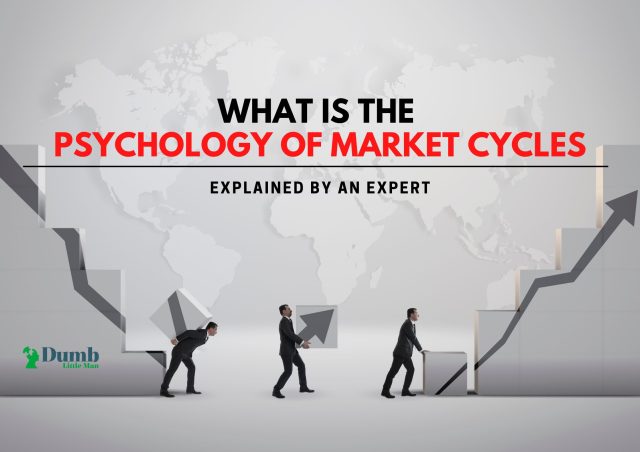
Want to jump straight to the answer? The best Stock Brokers are Tradestation and Tradier
The #1 Stocks and Forex Trading Course is Asia Forex Mentor
The investment markets are a game of cycles; the price charts move in a pattern, which is similar for all commodities. They rise after positive news, and once they reach their top, the downward spiral begins, and as soon as the rock bottom arrives, the prices bounce back.
Market experts often say, ‘buy the dip, and sell at a high.' Although the sentence sounds simple, making the decision in real life is complicated. You can never be sure about a market's lowest point before the trend changes. Market trends are a fundamental aspect of making profits in any investment market; however, the main question is who determines the trend.
The study of market psychology revolves around understanding the market patterns and how they move in cyclical phases. The information is essential for an investor's success in the Forex or stock market. If you're a new investor, you won't like to miss out on this blog. We shall talk about the psychology of market cycles, their different stages, and how investors can use them for their benefit.
We have Ezekiel Chew with us to share his take on the subject. He is a renowned forex and investment mentor and has helped thousands of students and institutions bring the best results from their investments.
What is the Psychology of Market Cycles?
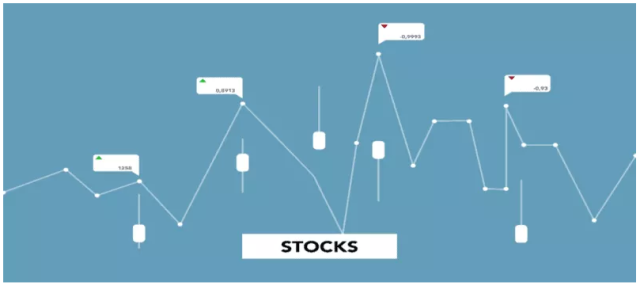
Psychology of market cycles is a broad term used to refer to investor emotions surrounding the financial markets; investors' sentiments can shape the price movements of a security. Before an investor enters the market, they must have detailed knowledge about the ongoing market cycle and their future.
According to the pricing law, the intersection of demand and supply creates the price; if a security has a sudden increase in supply with no increase in demand, the market volumes begin to increase with the falling price. However, if the demand rises with no change in supply, the price starts to increase.
The demand and supply are based on the market psychology or investor's perception. If investors have positive market sentiment, they will readily invest in the investment markets that would raise the demand creating a rising market cycle.
A downward cycle is created if a negative market sentiment prevails. It is important to note that a single investor can never dictate the flow of the market, and it often takes a public move to create a change in market cycles.
What is Market Cycle?
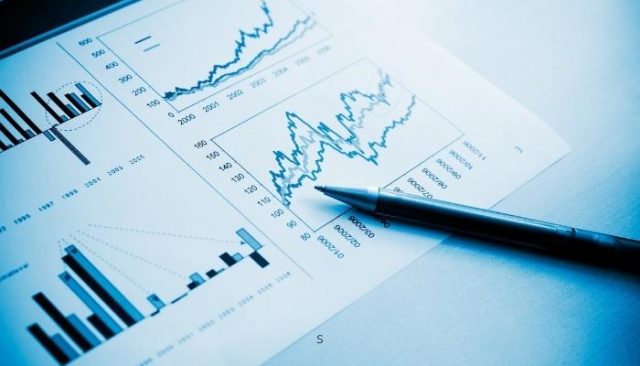
The investment markets are a part of the economy, and it is improbable to believe that an economy won't have an impact on them. Every investment will follow a particular fashion; it will rise to a high, and investors will start selling, which will cause the supply to increase, resulting in a declining price.
It creates a bear market, and soon the prices drop to their lowest. Investors see an excellent opportunity to make profits, start buying the dip, and demand rises. Finally, the demand creates a good market sentiment, and the prices rise again. You will note the pattern to be evident in most securities, if not all. The pattern is called a market cycle- the price movement between two ‘lows' or ”highs.
It is difficult to anticipate a market cycle before the trend changes; the trend would usually change once the market sentiment alters due to positive or negative news. Market cycles have different time frames, and some cycles may exist for a longer time than others. Some day traders may analyze the market cycles based on a one-day timeline, while swing traders may extend it for weeks or months.
Different Stages of a Market Cycle
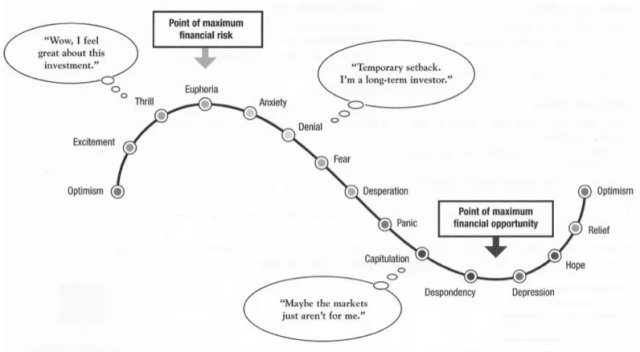
Investor emotions form multiple stages within a market cycle; psychological market cycles aren't free of fluctuations; instead, there are movements between market trends that highlight prevalent sentiments in the market. A market cycle can be divided into four stages, each with unique overall market sentiment.
#1. Accumulation phase
The cycle pattern could vary depending on where we start, but let's consider beginning after a bear market, where prices are at their lowest. It is the beginning of the accumulation phase, and general investors usually lack the confidence to invest in any security at this point.
It is partially due to the losses incurred over the last phase. You will notice a fluctuation in price charts at their lowest; it is mainly because smart money investors deploy buy orders at low points, leading to an increased demand that prevents the prices from going any lower.
Few value investors would step into the market during the accumulation phase, but the masses would still wait for bull markets.
#2. Mark up phase
After the accumulation phase ends, the market grows, and investor sentiments improve. The general investors are still reluctant to step in, but experienced traders would start making purchase decisions.
The market sentiment is largely positive, and the bull market is experienced. Smart money investors start selling parts of their investments. Some new investors may see price fluctuations in the phase as an opportunity to make a quick profit, and they may step in.
Many investors enter the market at the end of the markup phase due to fear of missing out on the opportunity.
#3. Distribution phase
The market prices peak during the distribution phase, mainly due to high investor confidence. Public investors tend to enter the market with high hopes of marking a profit. Usually, investors tend to make minimal profits and losses in this phase; however, the volume is generally higher than in other phases due to higher demand and supply.
Smart investors start withdrawing from the market in the distribution phase, and the market experiences sideways movements with prices fluctuating between high support and resistance.
#4. Mark down phase
The market down phase is marked by maximum financial risk for new entrants; the market experiences falling prices, and the volume keeps decreasing. Few new investors enter the market during the period, while in-trade investors look to sell their securities to lock in their profits or minimize losses.
The market experiences bearish sentiments, and the general public starts losing confidence in the economy. Some laggards may consider it the end of their trading journey due to losses made in the phase.
How do Emotions change during Market Cycles?
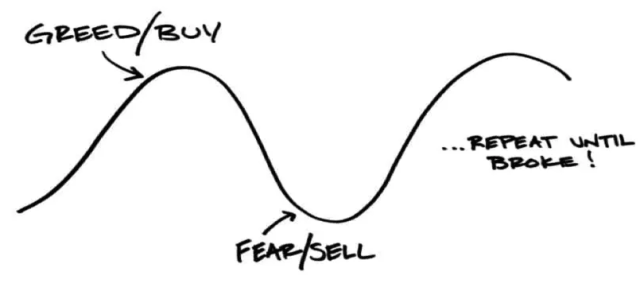
The stages of the market cycle indicate how the market moves as emotions in the market change. It is important to note that price fluctuation occurs due to changes in demand and supply. According to market psychology theories, price is determined by the intersection of demand and supply forces; the price of a security is determined by its demand and supply levels.
In a bullish trend, investors expect the prices to rise with a chance of future profits; hence, they will be willing to invest, causing a demand rise. The market prices start rising, and soon public investors begin investing, increasing the demand further. The investors have high confidence and expect the profits to improve further.
On the contrary, investors in a bearish market tend to suffer from agony and depression due to the falling prices. The market experiences a downward trend as investors try to exit their trades to avoid further losses. Investors have little confidence that lower prices and depress the markets.
Best Stocks and Forex Trading Course

Ezekiel Chew is a professional forex trader and trainer. He is the founder of Asia Forex Mentor, one of the largest forex education companies in the world. He has 2 decades of experience in the forex market and is respected for his knowledge and expertise.
Ezekiel's core program, ‘AFM PROPRIETARY ONE CORE PROGRAM,' is the Complete Program, which covers everything from beginner to advanced. The program is designed to give you the best possible chance of success in the forex industry. It is backed by mathematical probability and has been used by banks and trading institutions for years.
Ezekiel is a highly credible figure in the forex industry. So, if you are trying to make money in forex trading, you should check out his program to start your forex career.
| RECOMMENDED TRADING COURSE | REVIEW | VISIT |
|---|---|---|
 | #1 Forex, Crypto and Stocks trading course. Ranked most comprehensive by Investopedia and Best by Benzinga. Free to Try! |  |
Best Stock Brokers
| Broker | Best For | More Details |
|---|---|---|
 | Advanced Traders Read Review | securely through Tradestation website |
 | Intuitive Platforms Read Review | securely through Tradier website |
 | Powerful Services at a Low Cost | securely through Tradezero website |
 | Professional Forex Traders Read Review | securely through Interactive Brokers website |
Conclusion: Psychology of Market Cycles
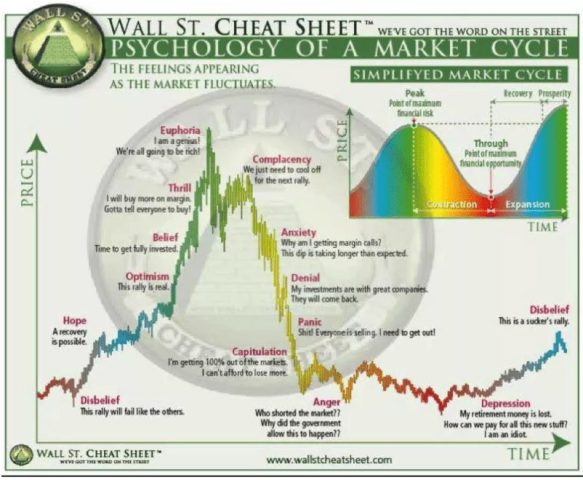
After we discussed market cycles, you would have understood the importance of investor confidence in the digital investment world. The market prices are determined by investor sentiment; if most investors are looking for a way out, the prices will decrease, and if they believe the prices to rise, they will readily invest, leading to higher prices.
Before investors enter the market, they must attain information about the ongoing market trend. If the market is bearish and prices are falling, the cycle is expected to go for a longer time, and it might be hard to make profits. Similarly, if the market is at a dip with sideways fluctuations, it highlights the accumulation period, and the rise may be on the cards.
Your investment success comes down to your knowledge of the market; if you are well versed with the tools and indicators, success will be easier to achieve. There are various free resources that you could use to attain profits.
Psychology of Market Cycles FAQs
How do Investors take advantage of Market Psychology?
Expert investors look to identify a trend before they enter the market; trend analysis allows them to anticipate possible changes before they occur, and they make wise investment decisions.
Usually, investors look for a negative sentiment in the market; it is typically the time during the markdown phase when market prices keep declining, and investors are looking for a way out. They tend to make significant investments at the dip and sell them for high profits as the prices improve.
Does the period of a market cycle affect Market Psychology?
The precise answer would be ‘No'. Market psychology refers to investors' emotions about prevailing market conditions, and it ultimately determines the market cycle.
If the market cycle is going through the markup period, investors would see it as an opportunity for quick profits. They may enter the market hoping to change their fortunes. Similarly, the market psychology changes as the market cycle progress ahead.
Jordan Blake
Jordan Blake is a cultural commentator and trending news writer with a flair for connecting viral moments to the bigger social picture. With a background in journalism and media studies, Jordan writes timely, thought-provoking content on everything from internet challenges and influencer scandals to viral activism and Gen Z trends. His tone is witty, observant, and sharp—cutting through the noise to bring readers the “why” behind the “what.” Jordan’s stories often go deeper than headlines, drawing links to pop culture, identity, and digital behavior. He’s contributed to online media hubs and social commentary blogs and occasionally moderates online panels on media literacy. When he’s not chasing the next big trend, Jordan is probably making memes or deep-diving into Reddit threads. He believes today’s trends are tomorrow’s cultural history—and loves helping readers make sense of it all.













